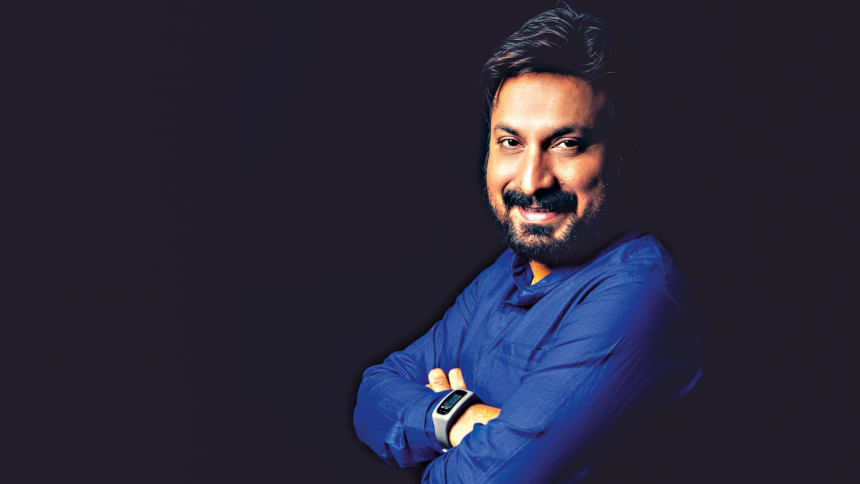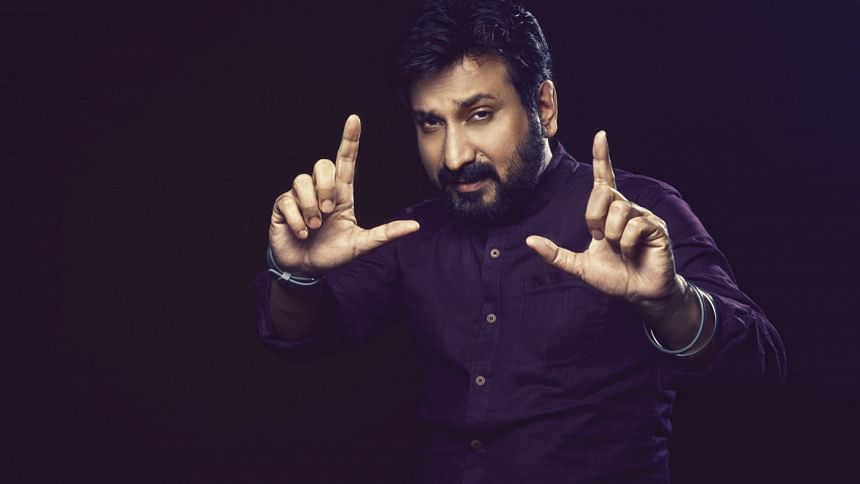Into the world of HUMOUR

Rafi Hossain: Welcome to Uncensored with Rafi Hossain. According to many, Bangladeshis aren't capable of making people laugh, but today's guest, Shaju Khadem, breaks that stereotype. Shaju, thank you for giving us your time.
Shaju Khadem: Thank you for having me on your show, Rafi Bhai. About Bangladeshi people not being able make others laugh, I don't think that's true. From the funny stories written by Jasimuddin to Gopal Bhaar, Bangladeshis have been known to have a good sense of humour.
Rafi: Has there been instances where people could not take a joke or misinterpreted it?
Shaju: Yes, that does happen a lot. There have also been times where a joke made by a foreign artist that gained popularity in Bangladesh got criticised when it was done by a Bangladeshi artist. What I want everyone to understand is that the jokes we say are not to attack anyone personally. They're just to make people laugh.
Rafi: How do you differentiate between a good and bad actor?
Shaju: I honestly cannot say who is a good actor and who is a bad one as every actor is different. The impact an actor has on our society or the number of fans an actor has determines their popularity. We can call them popular actors, but we can't say that that actor is a good actor. I think what makes an actor good is the acting they have studied and learned. Without acting training, actors will pretend to be instead of playing a character.
Rafi: So, do you think newcomers should do theatre or have institutional training to become a good actor?
Shaju: If they do theatre or gain institutional knowledge, it does not necessarily mean that they will become a good actor. One must practise and hone their skill as well. You must also have an understanding of what you are doing wrong and what you must improve: I can say this from my personal experience. Before I joined Charukola Academy, I already considered myself a great artist. When I first joined, I was given the task of drawing a picture of a bottle in seven days. I drew it in two minutes time and took it to the teacher, who ripped my drawing up and said that I hadn't even looked at the bottle properly before drawing it. He then proceeded to show us how to properly look at something before drawing it and also about shading and lines which you use to draw. Within two or three months I understood that the artwork I used to do before wasn't proper. I was so ashamed of how I used to take pride in artworks which weren't even that great, so I burned all of them.
Rafi: You impersonate a lot of people. How do you pick them?
Shaju: There are some people who are very unique. You don't have to hear them speak; you can recognise them just from their gestures and expressions. When I see someone like that, I imitate their gestures and behaviour. That's how I pick to mimic.
Rafi: Do you ever feel unsatisfied with what you have achieved?
Shaju: Not at all. I am happy with what I have done so far. The characters I do aren't inferior to any other character in a drama. Every character plays an important part. To me, the most important thing is to perfectly pull off the character I am doing. Even if I do a very small role, I aim to do it as well as I can.

Rafi: What do you think is a problem in the industry?
Shaju: I think a big problem for us is that people who make projects try to play it safe. We have many experienced actors in our country, but we are not utilising them.
Rafi: What tips do you have for new actors?
Shaju: I think that the new actors are much more brilliant than we were at their age. Those who are doing well are working very intelligently. I just want to ask them to be more responsible about their personal lives. They are in the public eye a lot, so they must maintain discipline. If they don't maintain this discipline, they cannot make a mark in the showbiz industry.
Rafi: Thank you for talking to us, Shaju. I had a great time. Would you like to say anything to the readers?
Shaju: I would ask everyone to pray for us, and I would request everyone to take the jokes I make very lightly.

 For all latest news, follow The Daily Star's Google News channel.
For all latest news, follow The Daily Star's Google News channel. 



Comments